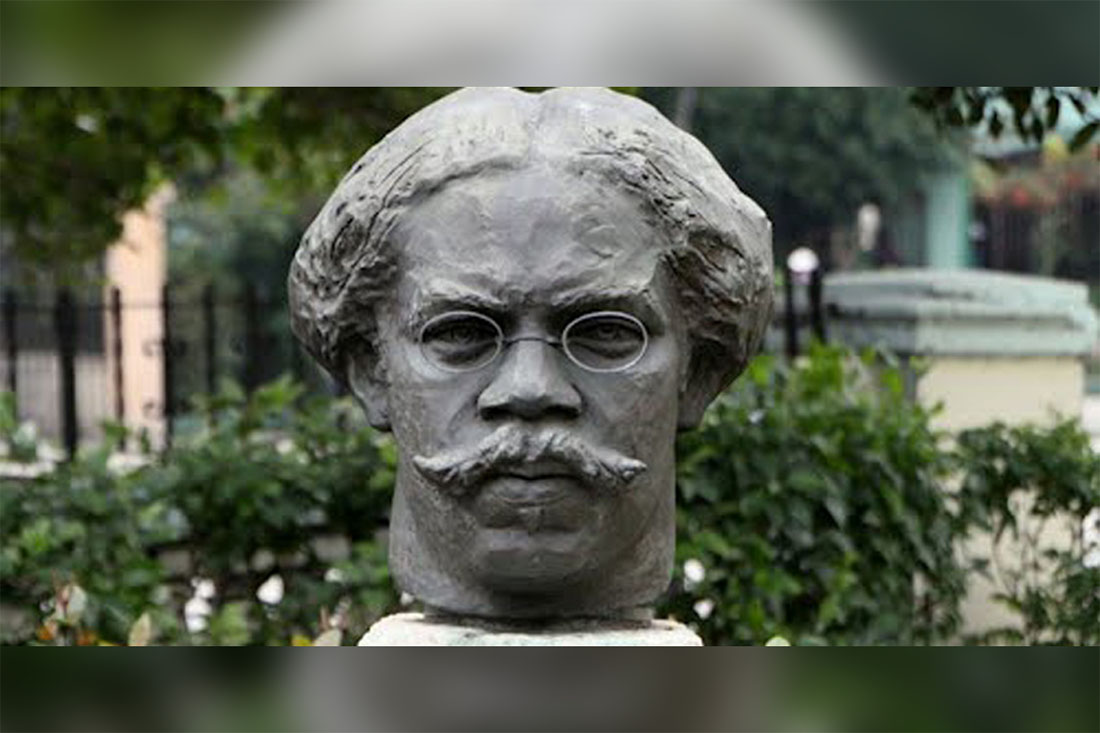On March 5th, at half past six in the morning, Juan Gualberto Gómez Ferrer gave in to death, who did not do so before force or the flattery of comfort and wealth. They respected his will. He was not laid in the Senate of the Republic nor did he consent to military honors. Villa Manuela, his poor residence, was his mortuary house.
His biographer Leopoldo Horrego Estuch emphasizes: “The austere and tireless rebel, with an immaculate history, left no fortune other than a revered and illustrious name, synonymous with exemplary citizenship, of which it can be said that he never looked at which side to live better, but where duty is, as a Cuban and as a man”.
Juan Gualberto and the Platt Amendment
During the 1901 Constituent Assembly, held at the Martí Theater in Havana, General Leonardo Wood left no alternative to the Convention but to accept the Platt Amendment.
In a letter to Theodore Roosevelt dated April 12th, 1901, which is preserved in the Library of Congress, Comptroller Wood gave vent to his hatred and wrote: “There are about eight, of the thirty-one members of the Convention, who are against the acceptance of the Amendment. They are the degenerates of the Convention, led by a black boy named Juan Gualberto Gómez, a man with a stinking reputation both morally and politically.
In his book “Juan Gualberto Gómez, Champion of the Independence of Cuba”, Emilio Roig de Leuchsenring summarizes that tragic episode: “But it is not possible to deny that our sympathies continue, at that moment in the history of Cuba; to those who remained desperately faithful to the ideal of absolute independence that had been embodied in Martí and in our best liberators. And the fact that Juan Gualberto Gómez was the hero of that bloodless but anguishing day in which, a man of peace, equaled the bravest combatants in the fields of Cuba Libre in manly effort and unwavering resistance, shines unfading.”
Camagüey and Juan Gualberto Gómez
The thought of unity of Juan Gualberto Gómez in the organization of the Necessary War in Cuba found essential support in the Associations of Instruction and Recreation of blacks and mestizos of Puerto Príncipe, which belonged to the Central Directorate of Societies of the Colored Race.
Similarly, the vision of education as the essential foundation for social progress found fertile ground in the thinking of the independentist intellectual Juan Gualberto Gómez. His pen and his writing are still insufficiently socialized in the history of Cuban thought.
Just a year after his death, the Camagüey Associations registry approved the provincial association Friends of Juan Gualberto Gómez, in 1934.
In this sense, the social and political leader, normalista teacher Felicita Ortiz -together with the lawyer and political leader Dr. Francisco Guillén Batista- developed a national leadership of social inclusion and the fight against discrimination that were made visible in the Centennial of Juan Gualberto Gómez (1954), supported in the National Convention of Cuban Societies, commemorated in that same year.
Guillén’s vision of Gómez
In Don Juan, he approaches the racist problem in an original way, with the Martí-Juan Gualberto duality: “Son of his time, the same as Martí”; “Champion of national unity, like Martí”; “the same thought as Martí”.
While the “little white man” leans towards the path of verse, he reserves “the job of carriage” for the “little mulatto”. But Juan Gualberto’s talent makes him as prominent as the other.
Guillén underlines: “After Martí, there is no figure with the sagacity, courage, inner strength, or broad political gaze of Juan Gualberto Gómez in the period that preceded the outbreak of the second war of independence.”
Later: “Martí and Juan Gualberto still have a lot to do in Cuba.” They must act in the present, although the logic of life indicates otherwise, however, Guillén affirms: “They no longer live, but we live.”
Relevance of his thought
Forcing the existing situation in Cuba (1933) to protect with the intervention, the life and properties of its nationals and citizen freedom, a reporter from El Mundo asked Juan Gualberto what he thought about this intervention, to which he replied : “I prefer death rather than giving my approval. Remember that I was the opponent in the Constitutional Convention of the ruling against the Platt Amendment.”
References:
– Grandes Periodistas Cubanos. Juan Gualberto Gómez. Preparando la Revolución. (1936) Publicaciones de la secretaría de Educación. Dirección de Cultura. La Habana.
– Guillén. Nicolás (2002) Prosa de prisa. T1. Editorial Unión. Ciencias Sociales. https://www.google.com/url?sa=i&url=https%3A%2F%2Fwww.cubainformacion-juan-gualberto-gomez-y-jose-marti-dos-cubanos-independentistas
– Horrego Estuch, Leopoldo (2004) Juan Gualberto Gómez. Un gran inconforme, Editorial Ciencias Sociales, La Habana, Cuba.
Translated by: Aileen Álvarez García






